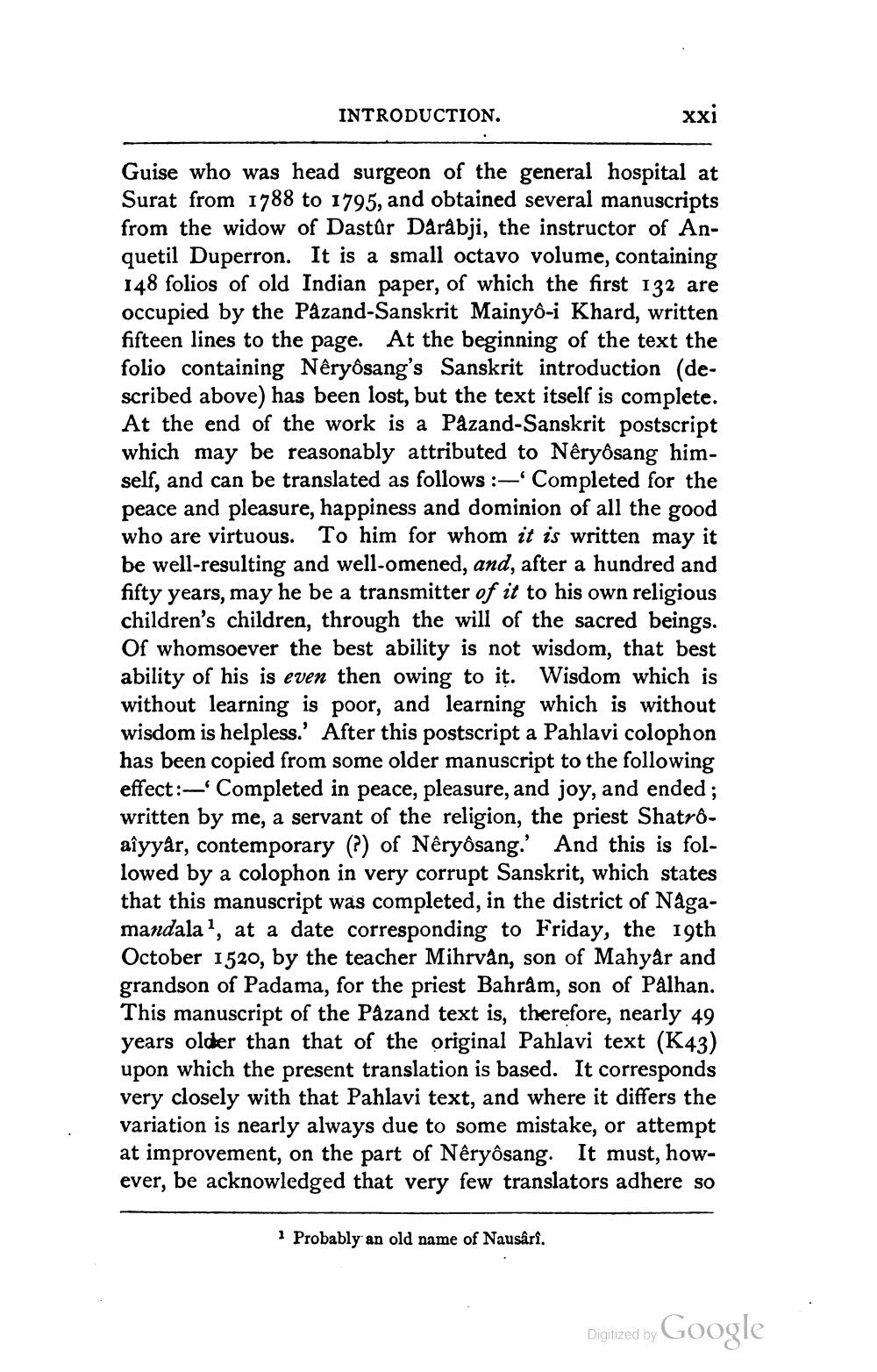________________
INTRODUCTION.
xxi
Guise who was head surgeon of the general hospital at Surat from 1788 to 1795, and obtained several manuscripts from the widow of Dastur Darabji, the instructor of Anquetil Duperron. It is a small octavo volume, containing 148 folios of old Indian paper, of which the first 132 are occupied by the Pazand-Sanskrit Mainyô-i Khard, written fifteen lines to the page. At the beginning of the text the folio containing Nêryôsang's Sanskrit introduction (described above) has been lost, but the text itself is complete. At the end of the work is a Pazand-Sanskrit postscript which may be reasonably attributed to Nêryôsang himself, and can be translated as follows:- Completed for the peace and pleasure, happiness and dominion of all the good who are virtuous. To him for whom it is written may it be well-resulting and well-omened, and, after a hundred and fifty years, may he be a transmitter of it to his own religious children's children, through the will of the sacred beings. Of whomsoever the best ability is not wisdom, that best ability of his is even then owing to it. Wisdom which is without learning is poor, and learning which is without wisdom is helpless. After this postscript a Pahlavi colophon has been copied from some older manuscript to the following effect:- Completed in peace, pleasure, and joy, and ended; written by me, a servant of the religion, the priest Shatrôaîyyar, contemporary (?) of Nêryôsang. And this is followed by a colophon in very corrupt Sanskrit, which states that this manuscript was completed, in the district of Nagamandala, at a date corresponding to Friday, the 19th October 1520, by the teacher Mihrvan, son of Mahyâr and grandson of Padama, for the priest Bahram, son of Palhan. This manuscript of the Pazand text is, therefore, nearly 49 years older than that of the original Pahlavi text (K43) upon which the present translation is based. It corresponds very closely with that Pahlavi text, and where it differs the variation is nearly always due to some mistake, or attempt at improvement, on the part of Nêryôsang. It must, however, be acknowledged that very few translators adhere so
? Probably an old name of Nausâri.
Digitized by Google




